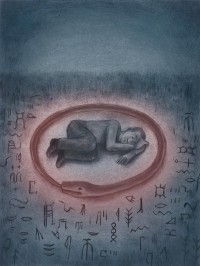
The Kekulé Problem
تأليف : Cormac McCarthy
النوعية : نصوص وخواطر
The Kekulé Problem by Cormac McCarthy..Over the last two decades Cormac and I have been discussing the puzzles and paradoxes of the unconscious mind. Foremost among them, the fact that the very recent and “uniquely” human capability of near infinite expressive power arising through a combinatorial grammar is built on the foundations of a far more ancient animal brain.
How have these two evolutionary systems become reconciled? Cormac expresses this tension as the deep suspicion, perhaps even contempt, that the primeval unconscious feels toward the upstart, conscious language. In this article Cormac explores this idea through processes of dream and infection. It is a discerning and wide-ranging exploration of ideas and challenges that our research community has only recently dared to start addressing through complexity science.
—David Krakauer
President and William H. Miller Professor of Complex Systems, Santa Fe Institute
The Kekulé Problem by Cormac McCarthy..Over the last two decades Cormac and I have been discussing the puzzles and paradoxes of the unconscious mind. Foremost among them, the fact that the very recent and “uniquely” human capability of near infinite expressive power arising through a combinatorial grammar is built on the foundations of a far more ancient animal brain.
How have these two evolutionary systems become reconciled? Cormac expresses this tension as the deep suspicion, perhaps even contempt, that the primeval unconscious feels toward the upstart, conscious language. In this article Cormac explores this idea through processes of dream and infection. It is a discerning and wide-ranging exploration of ideas and challenges that our research community has only recently dared to start addressing through complexity science.
—David Krakauer
President and William H. Miller Professor of Complex Systems, Santa Fe Institute



